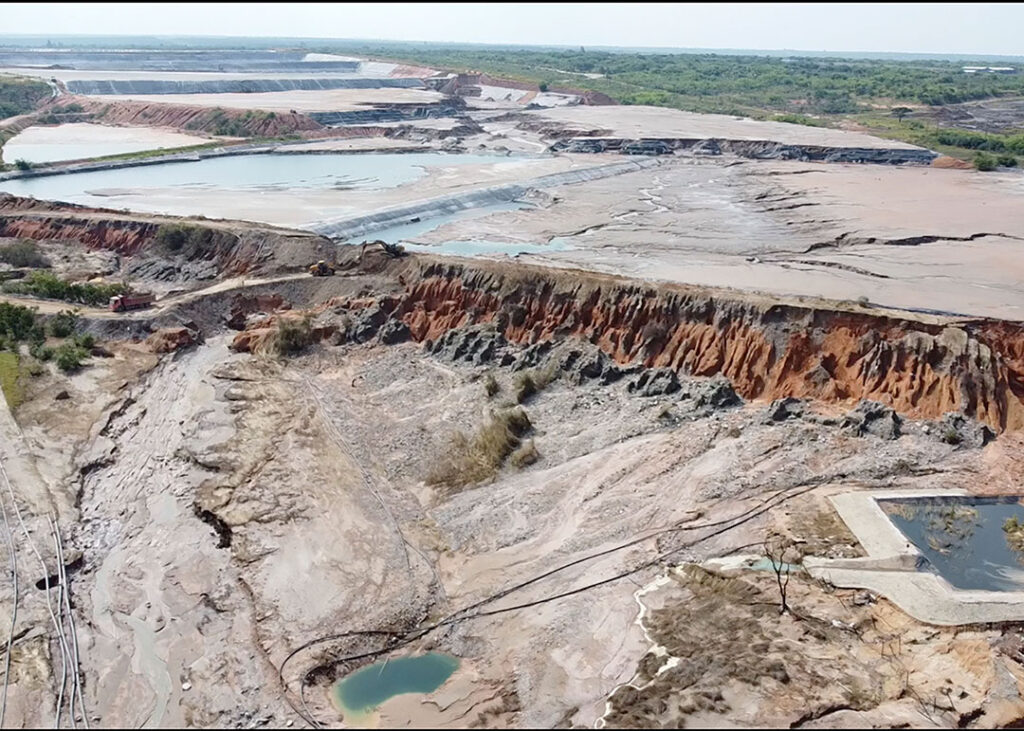Jingjing Zhang is a lawyer and environmental activist who has fought Chinese companies that pollute for decades. Her work has brought her to many countries, where she says her native China is using a hazardous development model: Pollute now, get rich and attempt to clean up later.
In May, she visited Zambia to advise villagers whose lives were devastated when a toxic waste spill from a Chinese copper mine caused one of the country’s worst ecological disasters.
“Companies have a field day when they come here,” Andrew Kombe, a Zambian lawyer who is representing villagers, told Zhang, according to Inside Climate News. “They can do whatever they want.”
Amid widespread uproar in Africa over countries struggling to repay Chinese debt, a troubling pattern has emerged in the background of the Belt & Road Initiative (BRI): Chinese mining and construction companies on the continent are leaving a trail of environmental devastation.
Luwi Nguluka, director of communications for the Wildlife Crime Prevention organization in Zambia, said the two issues are intertwined. In her country, China holds 82 loans — more than any other country in Africa — totaling $9.5 billion.
“The government’s close relationship and financial dependence on China poses challenges to holding Chinese-owned mining companies fully accountable,” she told ADF, explaining that cleaning up and restoring the environment around the Sino-Metals Leach Zambia spill could take many years. “Lax oversight and regulation have been long-standing issues in Zambia’s mining sector.”
Kenya is another cautionary example of huge BRI loans giving Chinese infrastructure companies outsized influence that can harm natural resources.
Chinese banks and companies financed and built the Standard Gauge Railway, which sparked controversy for bisecting Nairobi National Park and crossing the Tsavo conservation area, which supports about 40% of Kenya’s elephant population.
The railway has fragmented habitats, disturbed migration routes and altered wildlife behavior. Mitigation measures like wildlife underpasses were included, but studies showed that they have been only partially effective, with elephants and other animals still struggling to cross safely.
“Linear infrastructure projects like the railway must develop sustainable and ecologically sensitive measures,” the late Tobias Nyumba, then a researcher with the University of Nairobi wrote for the Conversation. “For example, underpasses must be at the right density and of the right size. At present, the underpasses are few and are located in areas not used regularly by wildlife.”
Within its opaque standards and guidelines, China has pledged to “green” the BRI by urging Chinese companies to meet best international environmental standards or more stringent Chinese rules. In Zambia, Zhang hopes to narrow the gap between that green rhetoric and the realities on the ground through her advocacy.
But Maggie Mwape, executive director of the Centre for Environmental Justice in Lusaka, Zambia, said that even assessing the full extent of the damage is challenging due to the lack of transparency from the Chinese mining company and the inherent pressure that comes with billions of dollars in Chinese loans.
“The Zambian government may face pressure to prioritize economic interests over environmental and social concerns,” she told ADF.
Meanwhile, Zambians are irate. The copper mine spill has damaged one of the country’s most important waterways, the Kafue River, which supplies potable water to about 5 million people, including residents of the capital, Lusaka. About 60% of Zambia’s population lives in its river basin and depends upon its waters.
“It really just brings out the negligence that some investors actually have when it comes to environmental protection,” environmental engineer Mweene Himwinga told The Associated Press. “They don’t seem to have any concern at all, any regard at all. And I think it’s really worrying because at the end of the day, we as Zambian people, [it’s] the only land we have.”
In a scathing critique, Bloomberg News’ Ondiro Oganga highlighted China’s heavy investment in helping meet Zambia’s ambitions to triple its copper production.
“We’re seeing the government being very diplomatic, tiptoeing around the [environment] issue so that they don’t trip some live wires,” she said on August 15.
Zambia is restructuring its debt with Chinese lenders, something Oganga believes the government does not want to jeopardize.
“There is also something to be said about China’s insatiable appetite for minerals, particularly across the African continent,” she said. “They’re leaving a trail of disasters that are beginning to taint the carefully curated image of worthy partners.
“We’ve seen fatalities at mining sites. We’ve seen conflict between mining companies and communities. We are now seeing environmental disasters coupled with corruption and fraudulent activities. China needs to go back to the drawing board and rethink how it’s going to do business, particularly mining on the African continent.”

